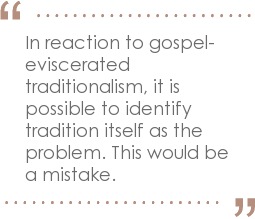More Than 20 Years of Baptisms Deemed Invalid Because of One Wrong Word by Phoenix Priest
Body
“Because he used the words ‘We baptize’ rather than ‘I baptize’ during the rite, thousands of baptisms have been deemed invalid.” - C.Leaders
As iron sharpens iron,
one person sharpens another. (Proverbs 27:17)
“Because he used the words ‘We baptize’ rather than ‘I baptize’ during the rite, thousands of baptisms have been deemed invalid.” - C.Leaders
“Some church history and tradition have been forgotten or neglected by many modern Christians…in part, for lack of knowledge of their importance.” Gavin Ortlund, pastor of First Baptist Church of Ojai, California, talks about recovering lost doctrine and practice and his new book Theological Retrieval for Evangelicals. - Ref21
“…on the selfsame day that I first learned of the gender reveal party I also learned why woke folk find it necessary to drive a stake through its heart. Opinion page after opinion page declared the trend ‘weapons-grade reinforcement of oppressive gender norms … and blunt-force refusal of the idea that sex assigned at birth does not necessarily equate with gender identity’ ” - WORLD
“The liberal person is an autonomous self whose ultimate goal is liberation from every idea and restraint except for the idea that restraint is unacceptable. Mitchell writes that the first stage of liberalism still relied on the Christian, traditional society in which it lived.
Here, in this excerpt from the Catechism of the Catholic Church, we see the official Roman Catholic position on the relationship between scripture and tradition:1
 Reprinted with permission from As I See It. AISI is sent free to all who request it by writing to the editor at [email protected].
Reprinted with permission from As I See It. AISI is sent free to all who request it by writing to the editor at [email protected].
The Bible declares its own Divine inspiration through the superintending work of the Holy Spirit over the authors:
Knowing this first that no prophetic utterance in Scripture comes from the [prophet’s] own motivation. For the prophetic utterance never came from human will, but while they were being carried along by the Holy Spirit, men spoke from God. (2 Pet. 1:20, 21; all translations are my own)
All Scripture is God-breathed. (2 Tim. 3:16a)
It likewise affirms its absolute truthfulness and freedom from factual error, Psalm 19:9b (among several places):
The fear of Yahweh is pure, standing for ever;
The judgments of Yahweh are true; they are completely just.
Furthermore, the Bible teaches its own all-sufficiency in matters of theological and spiritual truth, in short, its finality as the authoritative source of doctrinal beliefs and Christian practices. This is clearly the proper inference, the reasonable corollary of its Divine inspiration, as Paul plainly affirms:
All Scripture [literally, writing] is God-breathed, and [therefore] useful for doctrinal instruction, for conviction, for correction, for training in righteous conduct, so that the man of God may be completely equipped for every good work. (2 Tim. 3:16, 17)
Or, to restate it: the inspired Scriptures are an all-sufficient source for proper beliefs and conduct for every Christian. In short, they lack nothing necessary to becoming a Christian (“They are able to make you wise regarding salvation through faith in Messiah Jesus,” 2 Tim. 3:15) and growing to full Christian maturity. It might be said that they have “100% of the necessary daily requirements of all spiritual nutrients, vitamins and minerals.” They are, in a word, complete, and therefore the final and exclusive authoritative source of what Christians are supposed to believe and do. None other is necessary, or available.

The religious scene of South Africa is populated by mainline Protestant churches, some of whom place great emphasis on tradition. However, in many of these churches, the gospel itself is all but invisible, an assumed but unseen foundation of the house. The problem is, most of those in the house have never clearly heard or understood the gospel, and the same might be said for many of the religious professionals who teach there.
Once a person comes under the sound of the true gospel and believes it, he is struck by the sad irony of having attended a church for decades in which the gospel itself was never proclaimed. Inevitably, this new-found knowledge of biblical truth tends to produce a desire to distance himself from anything and everything connected with the former church, including any allegiance to tradition. Since such churches often rely on and turn to their traditions, the new Christian concludes that tradition must be part of the problem that caused the gospel itself to go into eclipse in such churches.
The truth is, tradition is indeed a double-edged sword. When tradition preserves the truth, it is a reliable record that comes to a newer generation without that generation having to re-invent the wheel. When tradition preserves untruths, it becomes the guardian of a lie that will not die. It is an accomplice to deception, using its antiquity to give credibility to its spurious beliefs and practices.
In reaction to gospel-eviscerated traditionalism, it is possible to identify tradition itself as the problem. This would be a mistake. If a particular museum keeps something worthless, this does not negate the value of museums. Clearly, what matters is what tradition preserves. A gospel-eviscerated tradition is a bad one. A gospel-centered tradition is a good one.
Note: This article was originally posted December 21, 2005.
Discussion